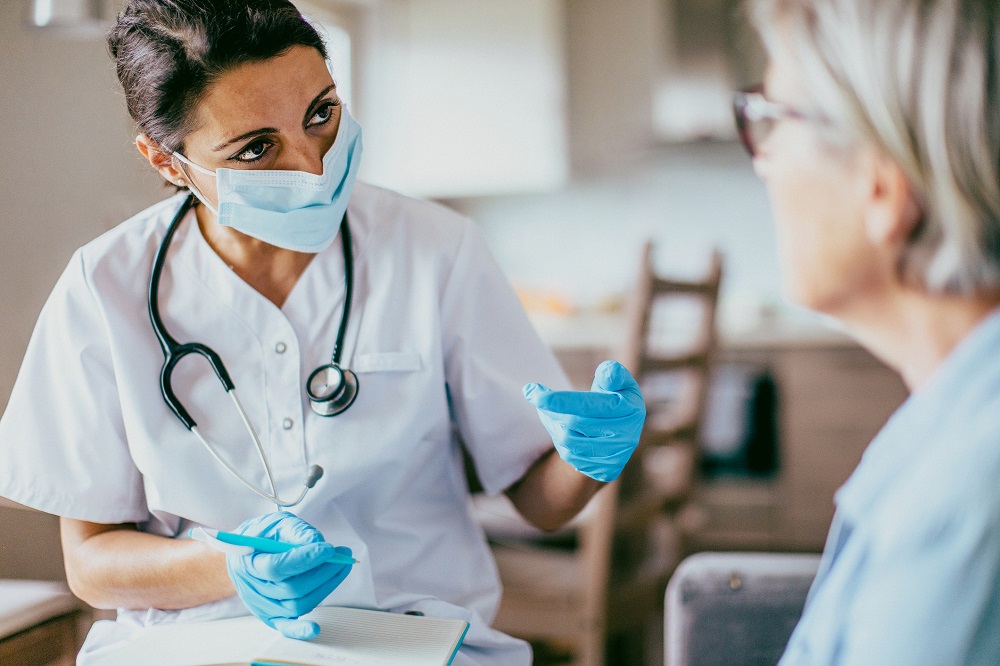Health
FG, Delta inaugurate guidelines on Medical Self-Care

The Federal Ministry of Health in collaboration with Delta Government has inaugurated the guideline on Medical Self-Care to promote healthy lifestyle in the country.
The event was a One-Day High Level Advocacy Meeting on the Implementation of the New National Guidelines on Medical Self-Care for Sexual, Reproductive and Maternal Health held in Asaba, Delta.
In his address, the state Commissioner for Health, Dr Mordi Ononye, said the meeting would provide important deliberations and further support on the actualization of the state government’s commitment to improve the Health and Wellbeing its people.
“As we know, Self-Care is the ability of individuals, families and communities to promote health, prevent disease, maintain health and cope with illnesses and disability with or without the support of a healthcare provider.
“The National Guidelines on Self-care interventions will provide direction on the integration of these Self-care interventions for Sexual Reproductive and Maternal Health into the Nigerian Health System.
“It should be implemented in an enabling Environment in line with World Health Organisation’s Consolidated Guidelines,” he said.
He said that the meeting coincided with the 10th anniversary of the International Day of the Girl Child, with theme “OUR TIME IS NOW-OUR RIGHTS, OUR FUTURE”.
He said that investments in girls right included sexual and reproductive health rights, remains limited.
“As stakeholders and policymakers, we need to make more targeted investments with regards to supporting and empowering the girl child.
He, however, said that provision of health services and commodities in Delta had steadily improved over the past few years, though not without hitches.
“We are still saddled with an unbearable burden of low contraceptive use and High Maternal Mortality Rates (MMR).
“This is coupled with issues such as low levels of health literacy, poor sanitation, poor access to Health care facilities and in some cases lifesaving interventions as well as inadequate attention to key social determinants of health.
“Therefore, these guidelines are a welcome development, and we hope will bridge the gap between the health care service delivery points and marginalized communities.
“The purpose of this multi-stakeholder coordination platform, therefore, is to harness the strength of diverse stakeholders and to leverage resources for the maximization of outcomes and attainment of a shared vision for the state and Nigerians.
According to him, the direct beneficiaries are women, children, adolescents and the elderly.
“It is unacceptable that our Women, Children and the aged are dying needlessly from preventable causes.
“This Self-Care guidelines will empower individuals to take timely action in disease prevention, improving their health and wellbeing as well as taking measures that ensure a healthy society.
“And as such, becoming a formidable contributor to improving the health and wellbeing of the Nigerian populace.”
On his part, Mr Lawrence Anyanmuzi, Director, Family Planning, Family Health Department of Federal Ministry of Health, said the guideline has been advocated in 20 states including Delta.
He noted that Federal Government developed the guideline in 2020 following the challenge of COVID-19 outbreak to ensure reduction of preventable diseases, particularly those associated with reproductive health and family planning.
According to him, the Federal Government alone could not afford the huge financial burden of providing commodities to cope with the demands consumables in the family health and family planning.
“It will cost the federal government about 35 million dollars to procure consumables to support family planning in a year.
“Withdrawal of international donor agencies support has negatively impacted the programme, hence, we are seeking states, local governments and donor partners to buy-in to meet the demand.
According to Anyanmuzi, the target of the programme is to move national Family Planning Modern Contraceptives Prevalence Rate (MCPR) from the current 12 per cent to 27 per cent in 2030.
He said that the advocacy would be taking to all the 36 states and the Federal Capital Territory to enable the buy-in to check the prevalence of unplanned pregnancies and Sexually Transmitted Infections (STI’s) across the country.
In their submissions, the partners; Society for Family Health, Partfinder International, Marie Stopes among others pledged their support to drive advocacy and training bases on the guidelines for Self-care.
Earlier, Dr, Jude Winful-Orieke, Permanent Secretary, State Primary Health Care Development Agency, laude the programme, adding that it provides guidelines for improved and better community health.
In his remarks, Dr Paul Yinkore, Director Community Health Services, at the Agency, urged donor partners to rise to the occasion and support government to enable the country to attain the Sustainable Development Golds (SDGs) by 2030.
The highpoint on the occasion was the unveiling of the National Guidelines on Self-Care for Sexual, Reproductive and Maternal Health; and the National Guidelines for State -Funded Procurement of Family Planning Commodities, by Dr Mordi Ononye, Delta Commissioner for Health.




 Davido's Net Worth & Lifestyle
Davido's Net Worth & Lifestyle 
